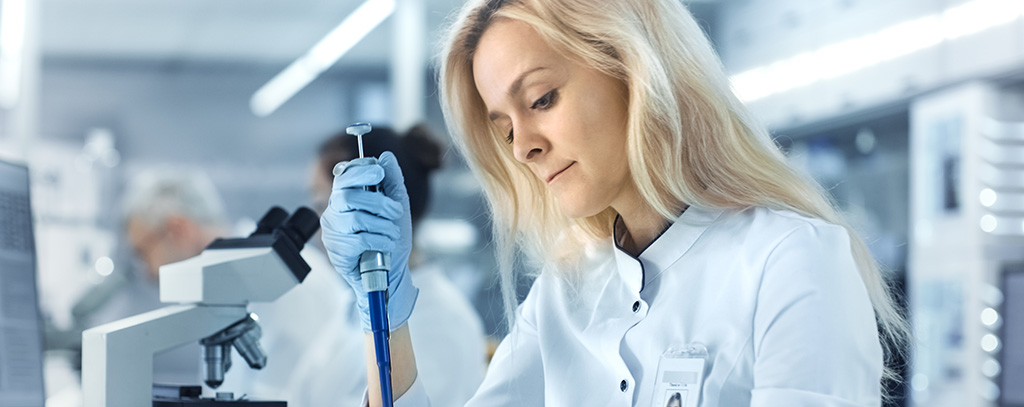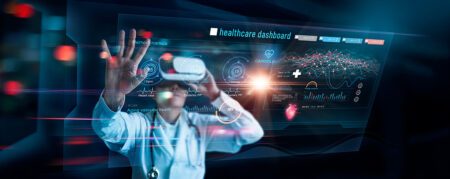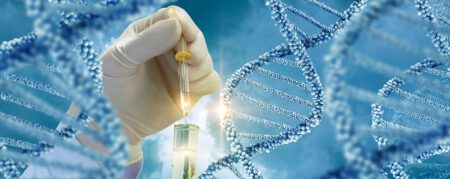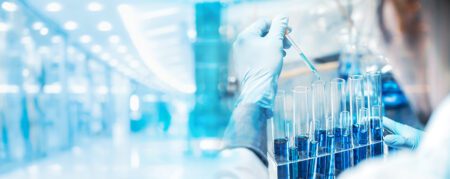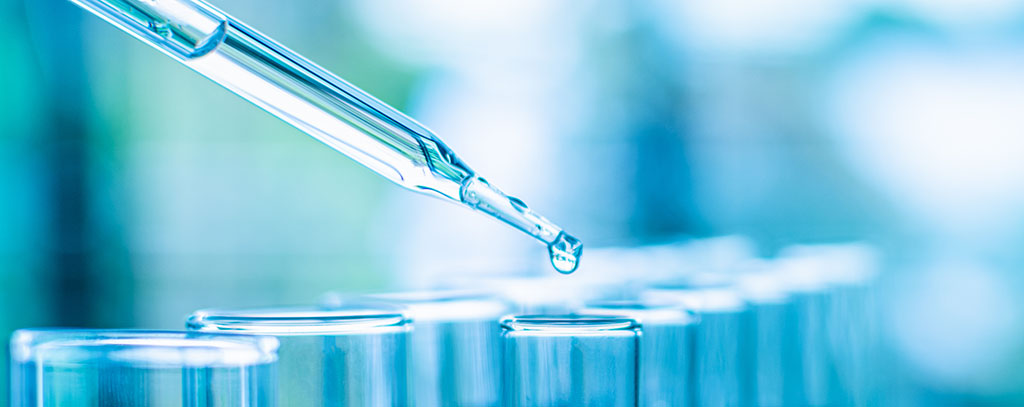


Optimizing Workplace Safety with 8 Panel Drug Test
May 25, 2023


What is a 7 Panel Drug Test? A Complete Guide
May 25, 2023If you're wondering "What is on a 6 panel drug test?", then this comprehensive guide will provide you with all the information you need. A 6 panel drug test is an essential tool for companies to ensure workplace safety and maintain productivity levels by detecting the presence of specific drugs in employees' systems.
In this blog post, we'll delve into what substances are typically tested for in a 6 panel drug test and how these tests work. Furthermore, we'll discuss the benefits of using such tests and explore various types available, including urine, saliva, hair follicle, and blood tests.
We'll look into aspects that could influence the reliability of test outcomes, as well as false positives and negatives. To ensure accurate results, confirmation testing methods will be explained. Lastly, we'll cover cost considerations for different types of tests and where to purchase them.
By understanding "What is on a 6 panel drug test" along with its advantages and limitations, employers can make informed decisions when implementing drug testing policies within their organizations.
What is a 6 Panel Drug Test?
A 6 panel drug test is an efficient and cost-effective diagnostic tool utilized by employers, medical professionals, and law enforcement agencies to detect six different substances within a single sample. This type of test can identify six different substances within a single sample, making it an efficient and cost-effective option for various purposes.
What Drugs are Tested?
The standard 6 panel drug test screens for the following substances:
- Marijuana (THC)
- Cocaine
- Opiates (including heroin, morphine, and codeine)
- Amphetamines (including methamphetamine)
- Phencyclidine (PCP)
- Benzodiazepines
Note that some variations of the 6 panel drug test may include other substances such as barbiturates or oxycodone instead of one or more drugs listed above. Employers and organizations should verify which specific drugs are included in their chosen testing kit.
How Does it Work?
A typical 6 panel drug test involves collecting a biological sample from the subject - usually urine, saliva, blood or hair - which is then analyzed using specialized equipment to determine if any targeted substances are present. The detection period varies depending on factors like metabolism rate and frequency of use but generally ranges from several hours up to few weeks after consumption.
Substance Abuse and Mental Health Services Administration
, provides guidelines for conducting workplace drug tests.
What are the Benefits of a 6 Panel Drug Test?
There are several advantages to using a 6 panel drug test, including:
- Efficiency: Screening for multiple substances simultaneously saves time and resources compared to conducting individual tests.
- Cost-effectiveness: The cost per substance tested is generally lower with multi-panel tests than single-drug screenings.
- Deterrent effect: Regular testing can discourage employees from using drugs in the first place, leading to a safer and more productive work environment.
In addition, organizations that implement drug testing programs may be eligible for discounts on workers' compensation insurance premiums or qualify for state and federal grants aimed at promoting workplace safety.
A 6 Panel Drug Test is a useful tool for companies to detect the presence of certain drugs in an individual. The 6 Panel Drug Test is renowned for its capacity to give precise results in a timely manner, making it one of the most dependable techniques accessible. Let's explore the various 6 panel drug tests that are commonly used today.
Types of 6 Panel Drug Tests
The 6 panel drug test is available in various forms to suit different testing needs and preferences. It is critical for organizations to select the most appropriate option, considering the advantages and restrictions of each form. In this section, we will discuss four common types of 6 panel drug tests: urine tests, saliva tests, hair follicle tests, and blood tests.
Urine Tests
Urine drug testing is one of the most popular methods for detecting drugs due to its affordability and non-invasive nature. It involves collecting a urine sample from the individual being tested and analyzing it for traces of specific substances. Urine tests can detect recent drug use within hours or days after consumption but may not be as effective in identifying long-term usage patterns.
Saliva Tests
Saliva (oral fluid) drug testing is another non-invasive method that requires individuals to provide a saliva sample by swabbing their mouth with a specialized collection device. This type of test offers quick results and can detect recent substance use within minutes or hours after ingestion; however, its detection window is generally shorter than that of urine tests.
Hair Follicle Tests
A hair follicle drug test provides an extended detection window compared to other methods since it can identify substance usage patterns up to 90 days after consumption. This test requires a small hair sample, usually taken from the scalp or body, which is then analyzed for drug metabolites. Although this method offers a longer detection period and can reveal habitual substance use, it may not be as effective in detecting recent drug intake.
Blood Tests
Blood drug testing is considered the most accurate method for detecting drugs in an individual's system but also tends to be more invasive and expensive than other options. It involves drawing blood from the person being tested and analyzing it for traces of specific substances. Blood tests can detect both recent and long-term drug usage patterns; however, their short detection window makes them less suitable for identifying occasional substance use.
In summary, each type of 6 panel drug test has its own advantages and limitations that companies should consider when selecting the most appropriate option based on their needs. By understanding these differences, businesses can make informed decisions about implementing effective drug testing supplies within their organization.
Comprehending the various forms of tests and their precision is crucial when relying on a 6 panel drug test for trustworthy outcomes. Factors such as specimen type, storage conditions, and laboratory testing procedures can all affect the accuracy of a 6 panel drug test; therefore confirmation testing may be necessary for accurate results.
Accuracy of 6 Panel Drug Tests
The accuracy of a 6 panel drug test is crucial for companies to make informed decisions about their employees' substance use. Various aspects can influence the precision of these tests, and it is essential to comprehend them in order to properly interpret the outcomes.
Factors that Affect Accuracy
- Quality of the test kit: The quality and reliability of the drug testing kits play a significant role in determining their accuracy. High-quality kits are more likely to provide accurate results compared to low-quality ones.
- Detection window: Each drug has its own detection window, which refers to how long after consumption it can be detected by a specific type of test. If an individual uses drugs outside this detection window, they may not be detected by the test.
- User error: Improper collection or handling procedures can compromise sample integrity and lead to inaccurate results. It's important for collectors and testers alike to follow proper guidelines when administering drug tests.
False Positive Results And False Negative Results
A false positive result occurs when a non-user tests positive for one or more substances due to cross-reactivity with other substances or errors during testing. On the other hand, false negative results occur when users pass undetected because either their levels are below detectable limits or there was an issue with sample contamination. Some common causes for false positives include:
- Certain medications such as antidepressants, antihistamines, antibiotics etc., that might interfere with certain components within immunoassays used in drug screening process;
- Consumption of certain foods or drinks, like poppy seeds and tonic water, which contain trace amounts of substances that may trigger a positive result;
- Improper storage conditions leading to sample degradation.
To minimize the risk of false positives and negatives, it's essential for companies to use high-quality drug testing kits from reputable suppliers. Additionally, proper training in collection procedures can help ensure accurate results.
Confirmation Testing for Accurate Results
In cases where initial screening tests yield positive results or are inconclusive, confirmation testing is necessary to verify the presence or absence of drugs in an individual's system. GC-MS, a sophisticated approach, is often employed for confirmation testing to precisely and distinctly recognize the elements contained in a sample. By using this advanced technique alongside initial screening methods like immunoassays, employers can confidently make decisions based on their employees' drug test results.
It is important to understand the accuracy of 6 panel drug tests in order to ensure accurate results. Cost can be a consideration when deciding which type of test to utilize.
Cost of 6 Panel Drug Tests
The cost of a 6 panel drug test can range depending on the type, source and any added services like lab analysis. In this section, we will discuss the costs associated with different types of tests and factors that affect their pricing.
Costs for Different Types of Tests
- Urine Tests: Urine-based 6 panel drug tests are generally the most affordable option, with prices ranging from $5 to $30 per test kit. These kits can be purchased in bulk for further savings.
- Saliva Tests: Saliva-based tests tend to be slightly more expensive than urine tests but still relatively affordable. Prices typically range from $10 to $40 per test kit.
- Hair Follicle Tests: Hair follicle testing is usually more costly due to its increased accuracy and longer detection window. Prices for these tests can range between $50 and $150 per test kit or higher if laboratory analysis is included.
- Blood Tests: Blood testing is the most expensive method because it requires professional collection and laboratory analysis. The cost for a blood-based 6 panel drug test may start at around $100 but could exceed several hundred dollars depending on various factors such as location and lab fees.
Frequently Asked Questions What is on a 6 Panel Drug Test
What is a typical 6 panel drug test?
A typical 6-panel drug test screens for six commonly abused substances, including amphetamines, cocaine, marijuana (THC), opiates, phencyclidine (PCP), and benzodiazepines. These tests are often used by employers to maintain a safe workplace and can be administered through urine, saliva, hair follicle or blood samples.
What shows up on a full panel drug test?
A full panel drug test typically screens for multiple drugs of abuse simultaneously. The number of panels indicates the number of substances tested. For example, a 10-panel test may include additional substances such as barbiturates, methadone, propoxyphene and methaqualone in addition to those found in a standard 6-panel test.
What is Drugs of Abuse Panel 6 Drug Panel?
Drugs of Abuse Panel 6 refers to the specific group of six commonly abused drugs that are screened during a 6-panel drug test: amphetamines; cocaine; marijuana (THC); opiates; phencyclidine (PCP); and benzodiazepines. This type of testing helps identify substance abuse issues among employees or job applicants.
How long does pee stay good for a drug test?
Urine samples should ideally be tested within two hours after collection but can remain stable at room temperature for up to four hours if properly sealed. Refrigeration may extend this time frame up to one week while freezing can preserve it even longer (source). However, laboratories generally prefer fresh samples for accurate results.
Conclusion
After reading this article, you should now have a better understanding of what is on a 6 panel drug test. Drugs such as marijuana, cocaine, opiates, amphetamines, PCP and benzodiazepines are usually tested for in a 6 panel drug test. Depending on the type of test used (urine, saliva, hair follicle or blood), different factors can affect accuracy and cost.
If your company needs reliable drug testing supplies to ensure a safe and productive workplace environment, consider partnering with Halux Diagnostic. Our high-quality products are available online or through local pharmacies and medical supply stores. Contact us today to learn more about our selection of drug tests!

